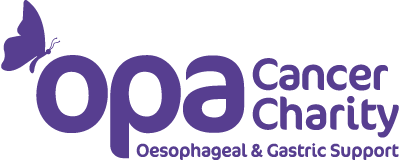Get Treated
If you have been diagnosed with gastro-oesophageal reflux disease (GORD) based on your symptoms or through objective reflux testing, there are a variety of approaches available to help manage your symptoms. Many people can manage their GORD symptoms by making lifestyle changes or with over-the-counter medications. In severe cases, some people may require stronger medications or surgery to relieve their symptoms.
Lifestyle Changes for GORD
Initially, physicians will suggest lifestyle changes to relieve GORD symptoms. Recommended lifestyle changes could include:
- Avoid foods and drinks that trigger symptoms
- Lose weight
- Quit smoking
- Avoid eating less than three hours before bed
GORD Medications
If you are not experiencing relief within a few weeks of making the recommended lifestyle changes, your doctor may recommend over-the-counter or prescription medications for GORD.
PPIs (Proton-pump inhibitors) are medications that reduce the production of acid in your stomach. For some people, PPIs are not always effective. Approximately 30% of people with GORD do not respond to PPIs and continue to experience symptoms. For those people, the medication isn’t treating the real problem.
If you have been taking antacids for months are still having symptoms, then you should consult a reflux clinic.
Other medications that may help with management of GORD symptoms include:
- H2 Blockers— Medications that decrease production of acid by blocking the cells that release stomach acid
- Antacids— Over-the-counter medications that neutralize stomach acid
Even if PPIs or other medications do provide relief, in some patients they only “mask” symptoms — they do not address the underlying cause of symptoms, which can delay the diagnosis of GORD.
If you were diagnosed with GORD based on symptoms, take PPIs regularly, and still have reflux symptoms, speak to a reflux clinic about objective reflux testing reflux testing.
Surgical Options
GORD can often be controlled by lifestyle changes and medication.
Surgery is only recommended for people whose GORD symptoms are not relieved by medication or lifestyle changes.
1.Traditional Ant-Reflux Surgery: Fundoplication
Fundoplication surgery involves wrapping the upper part of the stomach around the outside of the oesophagus at the lower oesophageal sphincter (LOS) to help prevent reflux.
For more information about fundoplication, click here.
https://www.opa.org.uk/traditional-anti-reflux-surgery-fundoplication.html
Benefits | Limitations/Risks |
· Reduced symptoms of heartburn, reflux and bloating · May heal damage to the oesophagus · May end dependence on medication | · Difficulty swallowing · Inability to belch or vomit when needed · Permanently alters the stomach anatomy · Typically requires hospital stay of 1-3 days · Symptoms may return over time · Requires a modified diet for several weeks · May limit activity for 2-3 weeks · Risks related to surgery and anaesthesia |
2. Alternative Anti-Reflux Surgery: LINX
LINX is a small flexible band of titanium beads with magnetic cores. The band is placed around the lower oesophageal sphincter (LOS) during a laparoscopic procedure (keyhole surgery). The beads separate temporarily when you swallow, allowing food and drink to pass into your stomach. The magnetic attraction between the beads then brings the device back to the closed position to prevent acid reflux.
For more information on Linx – www.linxforlife.co.uk
Benefits | Limitations/Risks |
|
|


